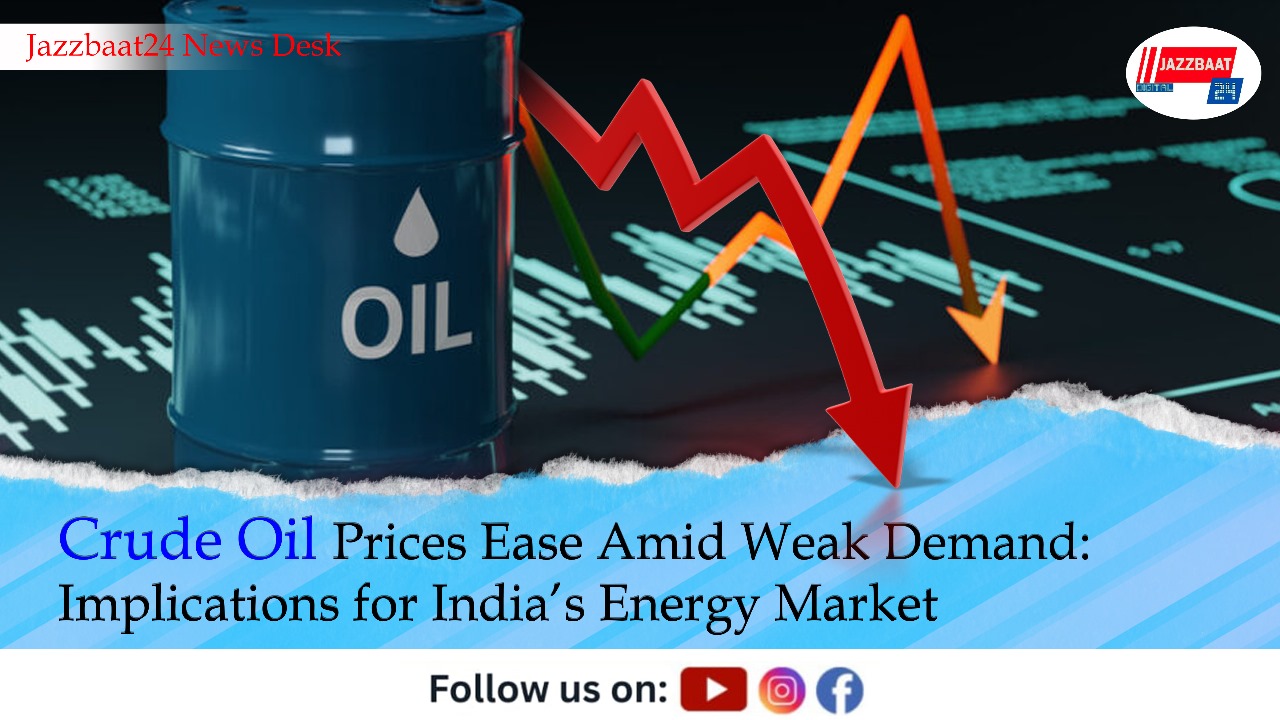
Crude oil futures on the Multi-Commodity Exchange decreased by Rs 43 to Rs 5,248 per barrel for November delivery, indicating a change in market sentiment and reflecting the ongoing volatility in both the domestic and international energy markets. The main cause of the drop, according to analysts, is the spot market's poor demand, which caused traders and participants to reduce their holdings. Even though the 0.81 percent decline might seem insignificant, it highlights more significant energy and economic trends that demand careful consideration.
But the drop also begs crucial questions regarding the root causes of the spot market's poor demand. There could be a number of reasons. Energy markets around the world are still dealing with uncertainty brought on by geopolitical tensions, changes in the policies of major oil-producing countries, and the rate of post-pandemic economic recovery. Immediate spot demand may be declining domestically due to sluggish industrial activity, muted consumption trends, or increased inventory levels. The market correction, according to analysts, is a short-term adjustment that reflects these dynamic forces rather than necessarily a long-term trend.
The situation offers both opportunities and challenges from the standpoint of policy. Given India's reliance on oil imports, the government may find that lower crude prices relieve pressure on the fiscal balance. Import bill reductions can aid in current account deficit management and free up funds for social welfare, energy transition, and infrastructure policy changes. However, in order to stay profitable in the face of price volatility, energy companies need to strike a careful balance between managing operating costs and hedging their positions.
The effect on inflation expectations and consumer sentiment is another important factor. Despite being impacted by taxes and duties, the price of gasoline and diesel is directly related to worldwide crude trends. A drop in crude prices frequently results in cheaper retail fuel prices, which can increase household disposable income and help small businesses that rely on logistics and transportation. Although only momentarily, the ripple effect can boost market confidence and encourage consumption.
However, the circumstances highlight the necessity for India to lessen its susceptibility to fluctuations in the world's oil prices. To lessen reliance on unstable foreign markets, it is essential to invest in renewable energy, increase domestic energy production, and encourage energy efficiency. Energy security can also be improved by diversifying supply sources and bolstering strategic petroleum reserves, which will enable the nation to endure external shocks without suffering significant economic disruptions.
In conclusion, the recent easing of crude oil futures has wider economic implications even though it represents a temporary weakness in spot demand. While it provides consumers and the government with a brief reprieve, it also draws attention to the inherent volatility of the world's energy markets and India's ongoing vulnerability as a major importer. Investors, industry participants, and policymakers need to be on the lookout for opportunities to improve energy resilience, promote sustainable consumption, and get ready for longer-term market swings. Temporary market corrections can be turned into strategic advantages for India's economic stability and energy security with a methodical, measured approach.